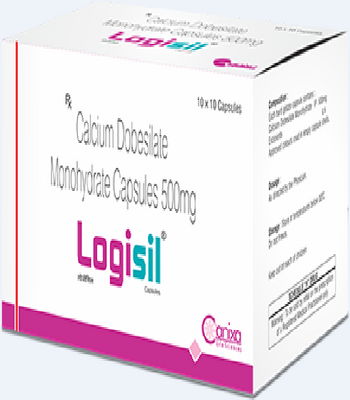Carloc 3.125mg Tablet 15'S
INR 45.37INR 45.37
Category :
Sub Category :
MG Details :
CARVEDILOL 3.125MG
Packing :
15
Mfr by:
Country of Origin:
NA
What CARLOC 3.125MG is used for?
CARLOC 3.125MG is used to treat high blood pressure and angina (chest pain)
CARLOC 3.125MG can also be given, along with other medicine, to help treat moderate to severe heart failure
Talk to your doctor before taking CARLOC 3.125MG if you:
Are allergic to carvedilol or any of its ingredients
Have asthma or breathing problems due to other lung problems
Have unstable heart failure or a conduction defect of the heart
Have a very slow heart beat (less than 50 beats per minute) or very low blood pressure
Have liver disease or kidney problems
Have diabetes
Have Raynaud’s phenomenon (cold hands and feet) or other peripheral vascular disease
Have an overactive thyroid gland or adrenal glands
Have psoriasis
Are suffering from a serious disturbance in the body´s acid-balance a condition
Have a very low pulse
Suffer from a form of angina pectoris called Prinzmetal’s variant angina caused by cramping of coronary arteries
Have labile or secondary hypertension or orthostatic hypotension
Suffer from, a sudden fall of blood pressure when you stand up
Have acute inflammatory heart disease
Have obstruction of heart valves
Are an alcoholic
Always take this medicine exactly as your doctor has told you
Swallow the medicine with at least half a glass of water
You can take with or without food. However, patients with heart failure should take the medicine with food to reduce the risk of dizziness when suddenly standing up
If you feel the effects are too strong or weak, talk to your doctor
To treat high blood pressure
The recommended starting dose is 12.5 mg taken once a day for the first 2 days, then 25 mg once a day
If necessary the dose may be increased to a maximum of 50 mg daily, in either one or two doses
If you are elderly, your doctor may increase the dose more slowly
Angina
The recommended starting dose is 12.5 mg taken twice a day for the first 2 days, then 25 mg twice a day
If needed your doctor may decide to slowly increase the dose further, to the maximum of 100 mg
The recommended maximum dose for elderly patients is 25 mg twice a day
Heart failure
The recommended starting dose is 3.125 mg twice a day for two weeks
Your doctor may decide to increase your dose in stages every 2 weeks until the dose is right for you
The maximum recommended dose is between 25 mg and 50 mg twice a day, depending on your weight
The maximum recommended dose in severe heart failure is 25 mg twice a day
If CARLOC 3.125MG treatment is stopped for more than two weeks, the dose should be restarted at 3.125 mg twice daily and slowly increased as above
If you have liver problems your doctor may give you a lower dose than those stated above
If you take more CARLOC 3.125MG
If you take more CARLOC 3.125MG than you should, contact your doctor or casualty department immediately
If you forget to take CARLOC 3.125MG
If you forget to take a dose of CARLOC 3.125MG take it as soon as you remember unless it is nearly time for your next dose
Do not take a double dose to make up for a forgotten dose
If you stop taking CARLOC 3.125MG
If you suddenly stop taking CARLOC 3.125MG you are likely to suffer from side effects. If needed your doctor will reduce your treatment slowly
Like all medicine, this medicine can cause side effects although not everybody gets them.
Chest pain, shortness of breath and swelling of your arms and legs (heart failure or angina)
Pneumonia
Feeling dizzy, weak and tired
Headache
Swelling and pain in the genitals
Infections in respiratory tract
Problems in passing water
Anaemia
Increase in weight
Increase in cholesterol levels (shown by a blood test)
Loss of control of blood sugar in people with diabetes
Problems with your sight, sore or dry eyes due to fewer tears being made
A slow heartbeat
Feeling depression
Problems with blood circulation
Stomach upsets, stomach pain
Pain, possibly in your hands and feet
Tell your doctor if you are taking, have recently taken or might take any other medicines including medicines obtained without a prescription, herbal medicines, especially any of the following:
Other medicines for your heart or blood pressure including alpha blockers (e.g. doxazosin), calcium channel blockers (e.g. verapamil, diltiazem), medicine for an irregular heart rhythm (e.g. quinidine, flecainide, amiodarone), nitrates (e.g. isosorbide mononitrate), digoxin, reserpine
Barbiturates, carbamazepine are the medicines to treat epilepsy and these will reduce the BP lowering effect of carvedilol
Cinacalcet, to treat high blood levels of calcium
Bupropion, to treat nicotine addiction
Fluconazole, to treat fungal infections
Clonidine, for high blood pressure or migraines; if stopping treatment, Carvedilol treatment should be stopped a few days before slowly reducing the clonidine dose
Antibiotics such as rifampicin, erythromycin
Cimetidine, to treat stomach ulcers, heartburn
Ciclosporin, an immunosuppressant used after organ transplants
Antidepressants (to treat depression) such as monoamine oxidase inhibitors (MAOIs e.g. phenelzine), paroxetine, fluoxetine, amitriptyline
Antidiabetic medicine, including insulin, as carvedilol can increase the effect of medicines as well as hide the symptoms of low blood sugar (feeling sick, weak and sweating)
Sympathomimetics such as pseudoephedrine (to treat colds), adrenaline (epinephrine) and isoprenaline (heart stimulants), noradrenaline (norepinephrine)
Neuromuscular blocking medicine (to reduce muscle tension)
Medicines for breathing problems (e.g. salbutamol, formoterol)
Ergotamine, for migraine
Certain painkillers (NSAIDs) e.g. ibuprofen
Oestrogens (hormones)
Corticosteroids e.g. prednisolone
Storage
Keep this medicine out of reach of children
Do not use this medicine after the expiry date
Store at room temperature (15-25°C)
Store in the original package to protect from light
Disclaimer:
The contents of this website are for informational purposes only and not intended to be a substitute for professional medical advice, diagnosis, or treatment. Please seek the advice of a physician or other qualified health provider with any questions you may have regarding a medical condition. Do not disregard professional medical advice or delay in seeking it because of something you have read on this website.











